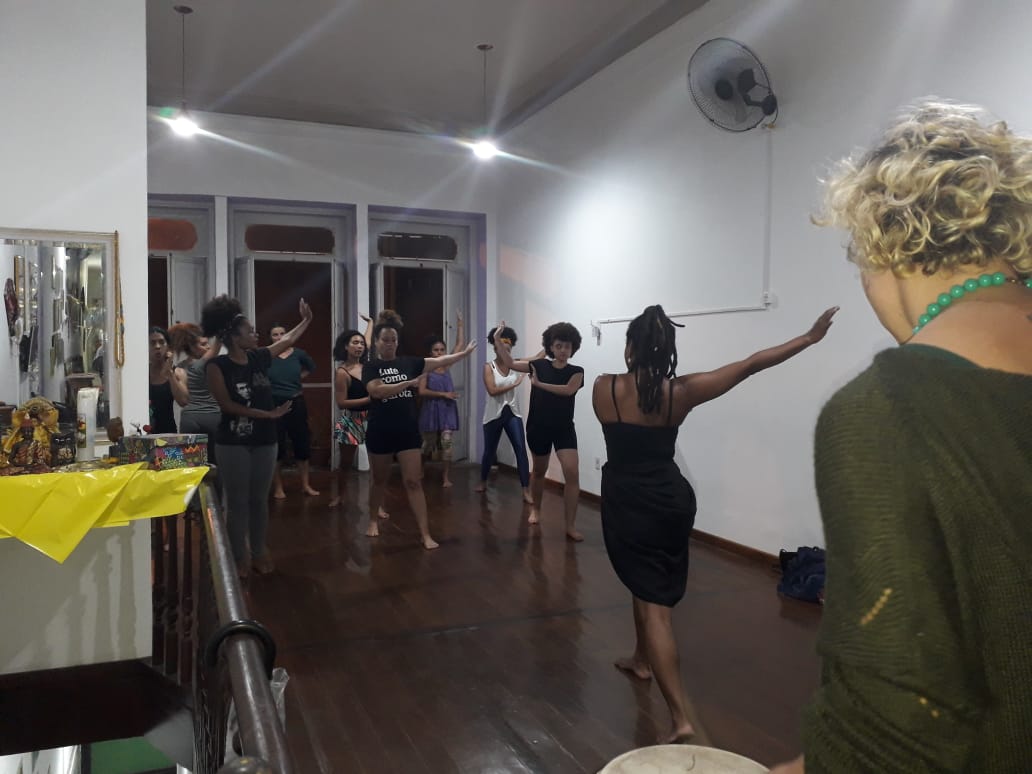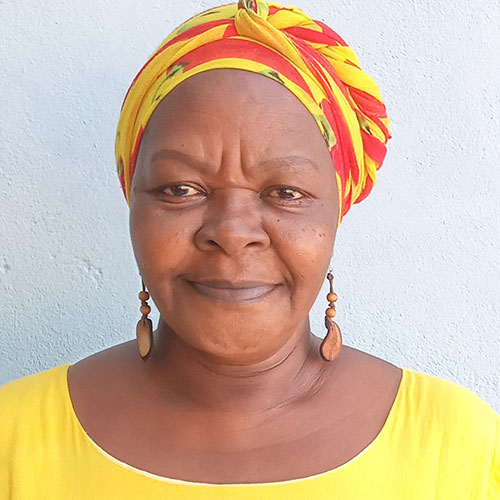Get to know Casa das Pretas: a space for encounters, reception, production, and specific practices of the experiences of black women
Discover Casa das Pretas, an initiative by the NGO Centro Coisa de Mulher, founded in 1994, by Neusa das Dores Pereira, 78 years old


Casa das Pretas (Black House) is an initiative of the NGO Centro Coisa de Mulher, which was created in 1994 by 78-year-old Neusa das Dores Pereira. Neusa is a black feminist, lesbian, and well-known advocate for black women. She is currently ill, but she is a pivotal figure in the campaigns in support of black women. She is a role model not only in Rio de Janeiro, but across Brazil, particularly for the LGBT community. Even though she is bedridden, her ideals and actions live on. She was and still is a warrior. This article is dedicated to her.


The head office is located in a large house on Rua dos Inválidos, 122, in central Rio de Janeiro. This space was rented and repaired with the help of a foreign institution that supports women’s projects.
Edmeire Exaltaço, director and general coordinator of Black House, was interviewed below
Neuza Nascimento: What is Casa das Pretas’ purpose?
Edmeire Exaltaço: The purposes are the same as those of Coisa de Mulher Centre: to fight for the human rights of black women and the black people in general, as well as to pay attention to and fight for the rights of the LGBTQIA+ community. Always with a broad perspective, but with a primary emphasis on lesbian women and a more refined focus on black lesbians. We all know that discriminatory categories are spreading in society. Our focus is primarily on two groups: black women and lesbian women, with the purpose of raising political consciousness.
Neuza Nascimento: What methodology is used to attain accomplish Casa das Pretas’ objectives?
Edmeire Exaltaço: We deal with the building of political awareness, and all of our efforts have this purpose in mind. The idea is that the women who participate in the events will leave with a more open mind and more knowledge. We were successful in this endeavour; those who participate in the programmes never leave the same way they came in, because our strategy is based on training and information.
Neuza Nascimento: How did Casa das Pretas (Black House) cope with the pandemic for nearly two years?
Edmeire Exaltaço: We reduced our operations in 2020 and 2021, but we did not cease. We provided food handouts donated by partners and held a sewing and fashion training named “Aso Okê” for 20 women. The goal of the course was not only to train seamstresses, but also to work on the topic of genderless fashion, and within that concept, we addressed homophobia, lesbophobia, and prejudice against the LGBTQIA+ community.
We also discuss prejudice in order to raise awareness among women, because women must recognise when they are victims in order to defend themselves. If one of the course participants wishes to work as a seamstress in the future, they are certified, but the most important thing is that they learnt about racism, racial and social inequalities, and other societal problems.
Neuza Nascimento: How is the neighborhood’s relationship with Casa das Pretas (Black House)?
Edmeire Exaltaço: The headquarters are in downtown Rio, in a residential area, with a population that is predominantly lower middle class and conservative. We were initially looked at with mistrust because the sound of atabaques during percussion classes led them to believe we were in a macumba house. Because of this local prejudice, we even reduced the frequency of classes.
However, there is a community that accepts and supports us. This support was stronger during the pandemic’s peak when we distributed several food handouts. This event changed the community’s perception of us. Casa das Pretas (Black House) has always been accessible to everyone, and throughout this critical moment, the community became closer and learned more about our work. On the other hand, there is still the curiosity reaction, such as “What are those black women doing in that house?” which is a way of downplaying the importance of space, but we keep going.
Challenges
Edmeire feels that the issues of Casa das Pretas (Black House) are similar to those of other black women’s institutions; the difficulty, in general, is finding resources for maintenance.
“Because we are an institution of black women, there are limited funds particularly focused toward us,” she explains. Because of racism, there is scepticism about our ability to carry out the projects we propose, and it is challenging to find institutions and investors who believe we will. This is changing; there are already public notices stating that the resource is only available to black women or groups of blacks. This is due to their awareness of the racism experienced by this demographic. They are affirmative action resources to counteract the racism that has been experienced.
Victories
Edmeire considers it a victory that they have lasted to this point and had this space, despite the fact that it is rented, and the expenses are significant.
“Casa das Pretas is primarily aimed at black women, but no one is excluded; if a white woman arrives asking for assistance and wanting to participate in the actions, she will be welcomed. We make it obvious that the area is for black women because of the entire historical trajectory of discrimination since slavery,” Edmeire says.
Some of the activities available at Casa das Pretas
The project provides professional and theoretical courses, lectures, and workshops on feminism, human rights, and black literature, with the goal of empowering and strengthening black women, not only theoretically and practically, but also educationally. The space also accepts initiatives from partner institutions, and with careful planning, events such as meetings, small theatre productions, book launches, and projects aimed at the same audience as Casa das Pretas (Black House) can be held there.
Casa das Pretas is now being institutionalised. To support this action or others carried out by Casa das Pretas, please email casadaspretas1@gmail.com
Follow Casa das Pretas on social media:



